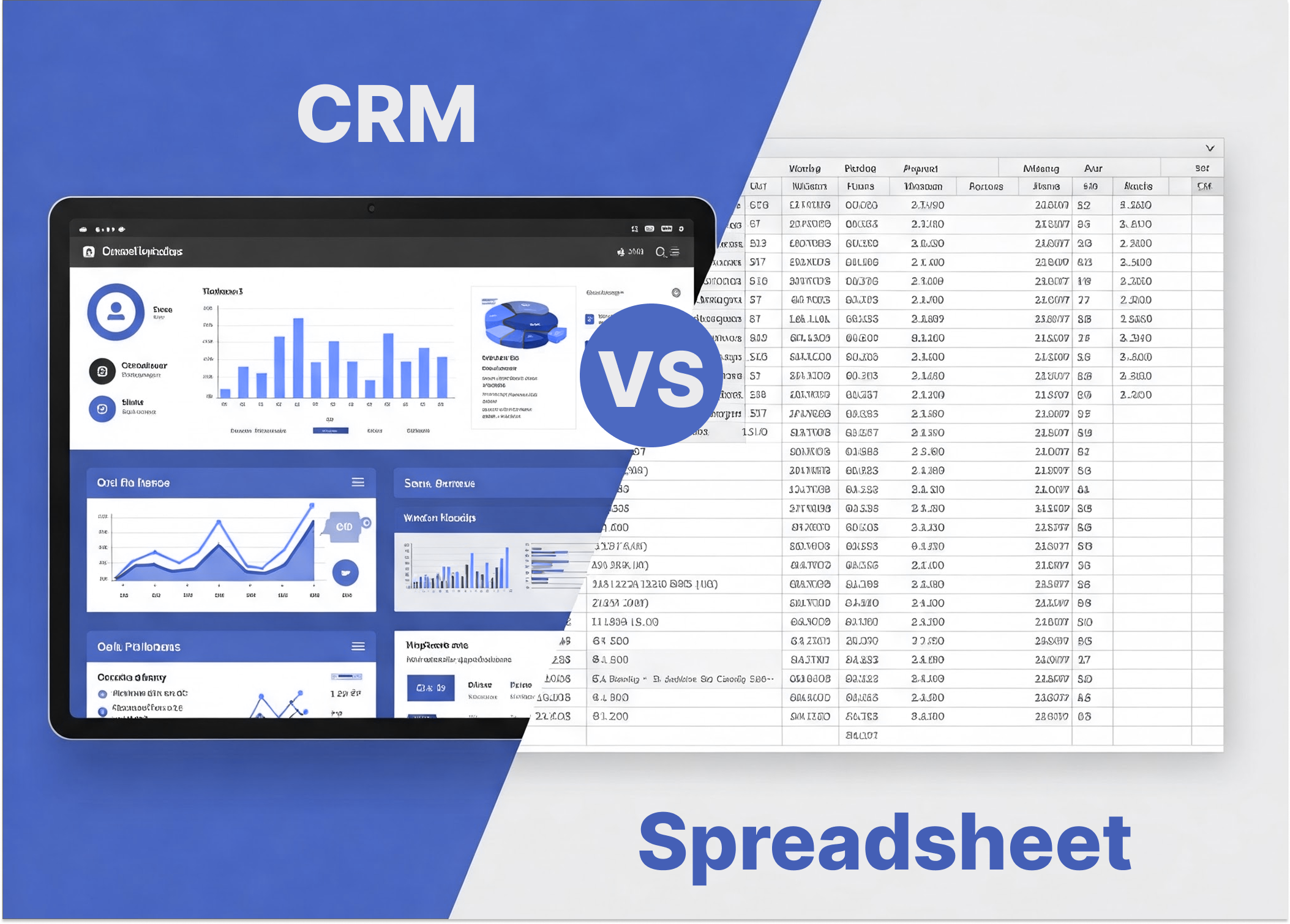CRM vs Spreadsheet: Here’s Why Your Business Needs a CRM
Apr 17, 2025 -
Introduction
Most businesses that work with lots of clients usually rely on tools like Excel or Google Sheets to organize the information and data related to each client and to keep track of it when needed.
This may be acceptable if you have a small number of clients and a simple daily transaction which are over in moments.
Back in the day, small neighbourhood shops used a simple trust-based system. People would come in, take what they needed, and the shopkeeper would write it down in a notebook known as the 'debt book’, Over time, the pages would often fill up completely since many people relied on buying on credit. Whenever the shopkeepers needed to check who still owed money, they’d flip through the book to find the amounts and remind people to settle their debts. Sometimes, a full page was dedicated to track a regular customer who bought on credit. But there was always the risk of the notebook getting lost, damaged, or even stolen, which would imply that the debts might also be lost.
This very simple example highlighted the necessity for an enhanced version of this "notebook" represented by an Excel spreadsheet; however, even use of a spreadsheet is no longer practical because you still need to manually enter, search, and remember, relying on your memory, which might occasionally fail you.
However, there are a wide range of examples of companies that would need to control their interactions with clients, and they are not just restricted to sales-related activities. Healthcare providers, travel and tourism agencies, fitness clubs, marketing firms, training and consulting firms, and many more are examples.
In general, any business that has a lot of customers, a lot of staff to manage, and a constant need for follow-up would generally benefit greatly from using a CRM system to improve its operations.
So, what are the main features of CRM systems that set them apart from conventional spreadsheets, though?
Benefits of using CRM instead of spreadsheet:
1. Workflow Automation:
Spreadsheets don't actually perform anything with the data; they only store it. CRM systems, on the other hand, use your data actively. They have the ability to automatically remind you of tasks that require your attention, such as managing collections, tracking payments, and following up with clients.
2. Centralized Record of Data:
CRM solutions provide a central database that houses all of your client data in one location. You get a complete history for each customer, which includes all messages, interactions, and shared data. When using spreadsheets, you have to do the work, searching through a large file to see if you can find what you need.
3. Integration Ability:
Spreadsheets are not apps that can be connected to social media, WhatsApp, or email. CRM solutions, on the other hand, provide smooth connection with other tools, enabling you to get data from all platforms in one place.
4. Advanced Filtering:
CRM solutions make it simple to find the information you require by filtering customers according to particular properties. The advanced filtering system, for example, makes it easy to deliver a special offer to customers in Riyadh or to those whose orders total $1,000 or more. In contrast, spreadsheets require you to search and filter before sending the messages.
5. Data Security & Backup:
Using spreadsheets increases the possibility of files being accidentally deleted, lost, or corrupted. Without backups, you might not be able to access your files even in the case of a computer failure. While using a CRM system, which is a s (SAAS) service, all data is stored on the cloud, so users don't have to worry about backups, maintenance, or updates.
6. Ease to Use:
You can easily and without any issues access your customer data from anywhere at any time using the computer or mobile app. The data can be edited and monitored by multiple people without any conflicts. However, managing, editing, and adding to spreadsheets on mobile devices is difficult. Additionally, you might discover several edits to a single file made by different people, with no way to determine which is the final version.
7. Team Management and Access Control: Tasks can be divided among team members (such as sales, support, or service employees) using CRM systems. Each member of the team is in charge of following up with a certain number of customers with restricted authority, free from other team members' intervention. Spreadsheets, on the other hand, allow all users to access the same file, increasing the risk of data loss or duplication.
